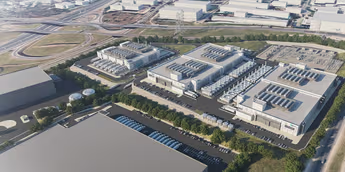Prof. Nentawe Yilwatda Emerges as New APC National Chairman

By Erewunmi Peace
In a significant political development, Professor Nentawe Goshwe Yilwatda has officially emerged as the new National Chairman of the All Progressives Congress (APC).
The announcement was made today, July 24, 2025, during the party’s 14th National Executive Committee (NEC) meeting held in Abuja. Yilwatda’s emergence follows the recent resignation of Abdullahi Ganduje, who stepped down from the position in late June.
Prof. Yilwatda, an engineer and academic, is the immediate past APC governorship candidate in Plateau State during the 2023 general elections. He is known for his experience in leadership, governance, and digital innovation, having served previously as INEC Resident Electoral Commissioner in Benue State.
A Smooth Transition of Leadership
Following Ganduje’s resignation, Ali Bukar Dalori, the APC Deputy National Chairman (North), had served in an acting capacity until today’s confirmation of Prof. Yilwatda. The transition was endorsed by party leaders and state governors, with President Bola Ahmed Tinubu reportedly supporting Yilwatda’s nomination.
Party Leaders React
During the NEC meeting, party chieftains and stakeholders described Yilwatda’s appointment as a “strategic and unifying move” as the party sets its sights on consolidating power ahead of the 2027 general elections.
Yilwatda, in his acceptance speech, promised to strengthen internal democracy within the APC, promote youth inclusion, and uphold the party’s founding ideals.
“We are ready to build a stronger, united, and forward-looking APC. Our goal is to position the party for sustained success and grassroots growth,” he said.
Background on Yilwatda
Prof. Nentawe Yilwatda holds a Ph.D. in Electrical Engineering and has lectured at various Nigerian institutions. He has also served in top-level administrative and technological roles both in academia and government.
What This Means for APC Prof. Yilwatda’s emergence comes at a time when the APC is seeking to maintain stability and realign internal structures after months of internal wrangling and leadership shake-ups.
His leadership style and relationship with party stakeholders will be closely watched in the coming months, particularly as preparations begin for the 2027 general elections.




















































































































































































































































































































































































































































































































































































































































































































































































































































































































































































































































































































































































































































































































































